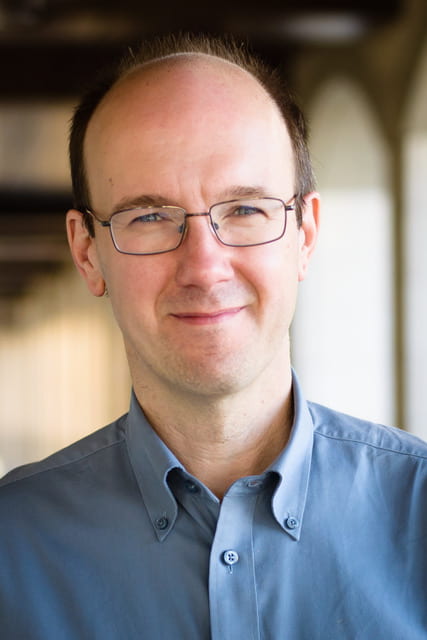FOR IMMEDIATE RELEASE
Friday, August 12, 2022
University of California Office of the President
University of California President Michael V. Drake, M.D., has appointed Dr. Bruce Macintosh director of UC Observatories (UCO), an astronomical research unit serving nine UC campuses, headquartered at UC Santa Cruz. Dr. Macintosh will begin his five-year term Sept. 1, 2022. He will also join the UC Santa Cruz faculty as a professor of astronomy and astrophysics. As director, Dr. Macintosh will oversee UC’s nationally and internationally renowned astronomical ecosystem that includes the Lick Observatory, the technical laboratories at UC Santa Cruz and UCLA and UC’s partnership role in the W.M. Keck Observatory in Hawaii. Dr. Macintosh has spent the past nine years as professor of physics at Stanford University and has served as deputy director of its Kavli Institute for Particle Astrophysics and Cosmology since 2018. An accomplished scholar, Macintosh has made significant contributions to science as principal investigator on numerous research grants for NASA, the National Science Foundation and Lawrence Livermore National Laboratory, where he served prior to his post at Stanford.
Dr. Macintosh’s research centers on the study of extrasolar planets, in particular, examining such planets through direct imaging and adaptive optics. Among his many accomplishments, he co-led the team that produced the first images of a system of exoplanets. He led the international collaboration that produced the Gemini Planet Imager, deployed to the Gemini South Telescope, which led to the identification of new exoplanets and advanced the study of planet formation. In addition, he directed a science investigation team for the coronagraph instrument on NASA’s Nancy Grace Roman mission. He has served on multiple National Academy of Sciences committees on astrophysics strategy, including the Astro2020 Decadal Survey.
Dr. Macintosh, who earned his Ph.D. in astronomy at UCLA, strongly believes in making the fields of astronomy and physics more inclusive, diverse and supportive.
Dr. Macintosh was selected after an extensive national search, launched by Dr. Maldonado and chaired by Dr. Beth Willman, deputy director of NOIRLab. The search committee included experienced astronomers and administrators from UC campuses and affiliate national labs and organizations. Macintosh replaces Dr. Claire Max, who retired in 2021; Dr. Constance Rockosi has served as interim director since July 2021. In addition to its national and international leadership in astronomy, UCO’s facilities have been instrumental in the careers of numerous winners of the Nobel Prize in physics including UCLA professor Dr. Andrea Ghez and UC Berkeley professor Dr. Saul Perlmutter.


This is a great choice. However, I hope that Dr. Macintosh will be work with the Stanford team who worked on the Rubin/LSST camera and facility to highlight the damage that Low Earth Orbit “LEO” constellations are inflicting on both optical/Near-Infrared and even ngVLA operations and science. Astronomy is core to our human psyche and watching the impact magnitude 7 and radio loud LEOs are having (SpaceX Starlink and Amazon Kuiper -soon) appalls and saddens me.
Yours Sincerely,
Dr Ivan Bishop (mm Astronomer by lineage)